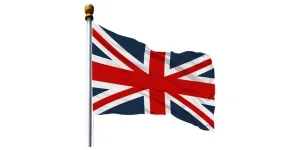The Law on Chemicals (No 06/2007/QH12) was passed by the second session of the 12th National Assembly on November 21, 2007, and has come into effect since July 1, 2008. It has become the cornerstone of Vietnam’s chemical management, reflecting the specific economic situation of the chemical industry and the development of global chemical management. After 15 years of stable implementation, the law has shown its comprehensiveness and advancement. However, with the enactment of the Planning Law, the Investment Law, and the Environmental Protection Law, etc. as well as changes in the management system, the guiding documents of the Law on Chemicals have been affected, weakening the coordination and unity of the regulatory system. Therefore, the government and the National Assembly have decided to revise the Law on Chemicals to promote regulatory consistency and management efficiency.

The Ministry of Industry and Trade (MOIT) of Vietnam has completed the draft revision to the Law on Chemicals and plans to submit it to the government in June 2024, and then to the National Assembly for review at the 8th session in October 2024. This revision is a significant update to the primary chemical management law and is requesting public comments. This revision aims to address the issues and deficiencies that have arisen since the law was implemented in 2008 and to comply with international standards to attract more multinational companies’ investment and provide more opportunities for Vietnamese enterprises in the global market.
This draft maintains the core policies submitted by the government to the National Assembly unchanged, as follows:
1. Adjustment of Scope
Compared to the Law on Chemicals (2007), the scope of the revision has been expanded to include regulations on the development of the chemical industry and chemicals in products. The revised draft is expected to define and clarify the terminology of chemicals and chemical-containing products, and to specify the types of chemical activities, thus making the scope of the law clearer than the 2007 edition.
2. Applicable Entities
The entities applicable to the revision remain unchanged from the 2007 edition. Specifically, the law applies to organizations and individuals engaged in chemical activities; organizations and individuals engaged in chemical activities within the territory of the Socialist Republic of Vietnam.
3. Structure of the Draft
The draft revision of the Law on Chemicals includes 95 articles and is divided into 11 chapters, with the specific arrangement and structure of each chapter as follows:
- Chapter I. General Provisions, consisting of 6 articles (from Article 1 to Article 6).
- Chapter II. Development of the Chemical Industry, consisting of 5 articles (from Article 7 to Article 11).
- Chapter III. Full Lifecycle Management of Chemicals, consisting of 4 parts, 34 articles (from Article 12 to Article 45).
- Chapter IV. Chemicals Registration, Information Provision, and Chemicals Advertising, consisting of 13 articles (from Article 46 to Article 58).
- Chapter V. Fulfillment of International Commitments on Chemicals Management, consisting of 2 articles (Article 59 and Article 60).
- Chapter VI. Hazardous Chemicals in Products, consisting of 3 articles (from Article 61 to Article 63).
- Chapter VII. Chemical Safety, consisting of 2 parts, 14 articles (from Article 64 to Article 77).
- Chapter VIII. Environmental Protection and Public Safety, consisting of 5 articles (from Article 78 to Article 82).
- Chapter IX. Reporting System, consisting of 4 articles (from Article 83 to Article 86).
- Chapter X. National Responsibilities in Chemicals Activities Management, consisting of 7 articles (from Article 87 to Article 93); and
- Chapter XI. Execution Provisions, consisting of 2 articles (Article 94 and Article 95).
4. Basic Content of the Draft
a) Chapter I. General Provisions
This chapter specifies the following: scope of regulation; applicable entities; legal application; interpretation of terms; principles of chemical activities; and acts that are strictly prohibited in chemical activities. It inherits and improves upon the provisions related to applicable entities, legal application, principles of chemical activities, and strictly prohibited acts in chemical activities from the Law on Chemicals (2007). It also amends and supplements the provisions related to the interpretation of terms.
b) Chapter II. Development of the Chemical Industry
This chapter specifies the following: state policies on the development of the chemical industry; strategies for the development of the chemical industry; regulations on chemical projects; key sectors in the chemical industry; and chemical consulting activities.
c) Chapter III. Full Lifecycle Management of Chemicals
This chapter provides for the management of banned chemicals; regulations on the management of specially controlled chemicals; management of conditionally produced and traded chemicals, and hazardous chemicals management.
d) Chapter IV. Chemicals Registration, Information Provision, and Chemicals Advertising
This chapter essentially inherits the 2007 edition on the registration, assessment, and management of new chemicals; information about chemicals; classification, labeling, and packaging of chemicals; safety data sheets for chemicals; confidentiality of information; the national chemicals inventory and national chemicals database; and regulations on chemicals advertising.
e) Chapter V. Fulfillment of International Commitments on Chemicals Management
This chapter supplements provisions regarding the compliance of organizations and individuals with Vietnam’s international commitments on chemicals management as a member country; and assigns the liaison agencies responsible for fulfilling international commitments on chemicals management.
f) Chapter VI. Hazardous Chemicals in Products
This chapter supplements the following provisions: general regulations on hazardous chemicals in products, establishing control procedures for hazardous chemicals during production, and disclosure of information about the content of hazardous chemicals in products.
g) Chapter VII. Chemical Safety
This chapter specifies the following: conditions to ensure safety in the production, commercial activities, transportation, storage of chemicals, and the prevention and response to chemical accidents.
h) Chapter VIII. Environmental Protection and Public Safety
This chapter inherits the 2007 edition on the responsibility for protecting the environment and community safety, the rights and obligations of organizations and individuals in terms of environmental protection and community safety, the disclosure of chemical safety information, the responsibility for dealing with residual toxic chemicals, the responsibility for handling confiscated products containing toxic chemicals, and the responsibility for dealing with toxic chemicals left from wars. It abolishes the provisions on liability insurance for damage caused by chemical activities, as this is already stipulated in the Insurance Law.
i) Chapter IX. Reporting System
This chapter introduces a regular reporting system for investment activities and enhances the regular reporting requirements for the management of hazardous chemical products. It inherits the 2007 edition and its specific decrees on reporting systems for the production, import, and use of banned chemicals; reporting on the production, import, use of hazardous chemicals, and chemical safety assurance activities; and provisions on the retention period for reports.
j) Chapter X. National Responsibilities in Chemicals Activities Management
This chapter specifies the following: the national responsibilities for managing chemical activities, the responsibilities of the Ministry of Industry and Trade, the Ministry of Health, the Ministry of Agriculture and Rural Development, the Ministry of Public Security, the Ministry of National Defense, the Ministry of Natural Resources and Environment, the Ministry of Transport, the Ministry of Labor, War Veterans and Social Affairs, the Ministry of Science and Technology, and the responsibilities of the Provincial People’s Committees. It includes provisions on inspections, handling violations, and dispute resolution in chemical activities, inheriting the 2007 edition.
k) Chapter XI. Execution Provisions
This chapter specifies the effective date and transitional provisions of the law.
To ensure the implementation of the draft, the MOIT also conducted a comprehensive assessment of the following four policies, including identifying existing issues, objectives for resolution, proposed solutions, and evaluating the impact of the solutions. After analyzing and comparing the positive and negative impacts of each solution, the best option was chosen:
- Policy 1: Transforming the chemical industry for sustainable development into a modern basic industry.
- Policy 2: Synchronized management of chemicals throughout their lifecycle.
- Policy 3: Management of hazardous chemicals in products.
- Policy 4: Enhancing the efficiency of chemical safety assurance.
This revision demonstrates the Vietnamese government’s continued commitment to chemical safety and environmental protection, while also providing a clearer regulatory environment for domestic and foreign investors. At this crucial stage of requesting public comments, the government has created a platform for the public to ensure that the new law can promote economic growth while meeting public welfare.
If you need any assistance or have any questions, please get in touch with us via service@cirs-group.com.
Source from CIRS
Disclaimer: The information set forth above is provided by cirs-group.com independently of Alibaba.com. Alibaba.com makes no representation and warranties as to the quality and reliability of the seller and products.




